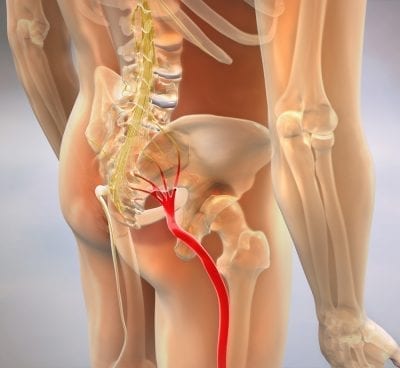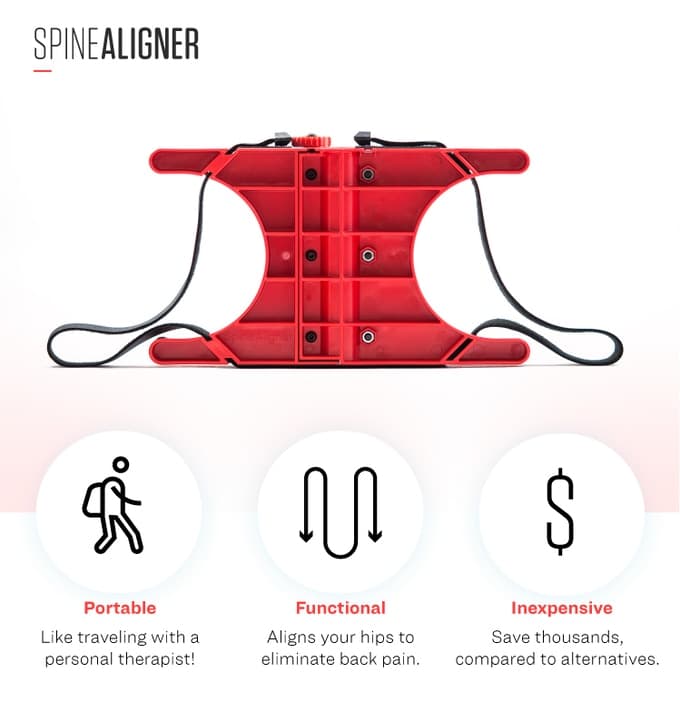You might be surprised to learn that sciatica isn’t a condition. It is a description of symptoms caused by other conditions in your lower back. You also might not care, because whatever it is, sciatica hurts!
Sciatica is the name of the pain from when something, usually a herniated disc, but other causes are possible too. Such as compresses, irritates or inflames the sciatic nerve or one of the nerve roots that eventually become the sciatic nerve. Translation: pain up and down your leg—you might feel it anywhere from your buttocks to your ankle.
What causes Sciatica?
As previously stated, “Sciatica is actually a symptom of an underlying problem.” There are several spinal disorders that can cause sciatic nerve compression. The six most common are:
- Bulging or herniated disc
- Lumbar spinal stenosis
- Spondylolisthesis
- Trauma
- Piriformis syndrome
- Spinal tumor
All though all of these can be responsible for sciatica, disc herniation is by far the most common. In fact, some research indicates that up to 90 percent of sciatica is the result of a herniated disc in the lumbar spine.
Can stress and anxiety cause Sciatica?
When we experience anxiety, the brain denies the nerves in the lower back oxygen, resulting in sciatic symptoms. In addition to this, cortisol (a hormone produced when we are stressed) may make sciatica worse and/or cause it to last longer.
What can we do for relief?
Many doctors recommend alternating cold and hot packs for a few days. There are also lots of stretches for lower-back and sciatic pain relief. You may think that rest and taking it easy is the best solution, however if you sit still, the nerve will continue to be irritated. Staying in motion will reduce the inflammation.
When home remedies do not work, many doctors prescribe medication, like anti-inflammatories, muscle relaxants, steroids injections and even surgery.
- Fortunately, surgery and medications are not the only solution. Many individuals can experience relief with proper exercises, techniques and nutrition.
- If you’re experiencing pain or discomfort while standing, walking, climbing stairs, or getting in and out of chairs; stiffness after periods of rest; weakness, instability or swelling, rest assured that we can help!
Want to know more? Check out the videos on the front page of our website to see how the Spine Aligner works. Contact us to find out more about how the Spine Aligner can help you.


